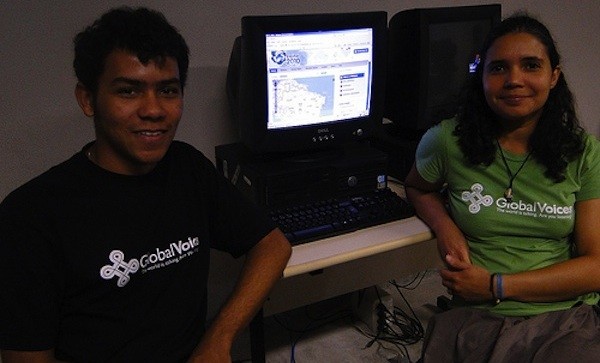Brazilian Elections and Emerging Webcitizenship

Diego Casaes and Paula Goes from Global Voices Online have been instrumental in crowdsourcing efforts for the 2010 Brazilian elections.
Oct. 3 was Election Day in Brazil. About 135 million Brazilians voted (in Brazil, voting is compulsory) for their candidates for president, state governors, senators, federal and district deputies. However, these elections took place in a new context. It was the first time Brazilians experienced the Internet playing a significant role in the media coverage and in the election itself. All the candidates for president and most of the other candidates have had websites and Twitter accounts. The election saw the first online debate among presidential candidates in August. Several other debates were recorded and published on the Internet. And also, many citizen-created projects flourished, allowing voters to have a more active role in the elections.
One of the citizen projects is Eleitor 2010 (in Portuguese). Created by Paula Góes, a Brazilian who lives in London and Diego Casaes, both working with Citizen Journalism for Global Voices Online, the idea was to create a place to give Brazilian voters a voice, to help them publish reports about candidate misbehavior and electoral crimes. According to Paula, the idea was based on the success of Ushahidi in Mozambique’s elections last year.
Ushahidi (meaning "testimony" in Swahili): is an open source platform that uses crowdsourcing tools to map, collect and show data. It was created to map reports about violence in Kenya in 2008, after the post-election crisis. It has been used in several countries as a platform for citizen journalism and also has inspired people to participate, connect and help each other in humanitarian causes and citizenship projects.
Paula says her experience has taught her how eager Brazilians are to participate in the election process. “In the past, we received complaints made by the population but we never had the time and people to investigate," she says. "Thinking about that, the Ushahidi system seemed to me to be the perfect solution to help people to work as supervisors of their elections.”
The Project Eleitor 2010 had gathered more than 1,000 testimonials through Oct. 3 (the election’s first round), and had designed a space where citizens could report electoral crimes but also where they could check to see if their candidates were among the ones who were being reported. It was the first experience of this kind in Brazil. Most of the complaints circulated also on Twitter (hashtag #eleitor2010 and on the project’s Twitter account @Eleitor_2010).
Also, throughout election day, the website provided voters with live coverage, reporting what was happening based on citizen accounts. “This is absolutely the first time Brazilian electors have a tool that gives them a power they never had,” Paula says. “I think this first experiment is a seed of citizenship, or webcitizenship.”
Internet's Role Leading Up to the Election
The Internet has been an important tool throughout the 2010 Brazilian elections. The “Ficha Limpa Project” (“No record project”; link in Portuguese) was a popular initiative that used the Internet to help engage voters, and led to the passage of a law (in June) intended to identify candidates with records of misdeeds. The law, known as the “Ficha Limpa” law, was subsequently challenged by a candidate. It went to the Brazilian Supreme Court for review until last week when the complaint against the law was withdrawn. Because of the law, candidates who were elected despite records of misdeeds (historically, a problem in Brazilian elections) will have their elections declared null and void.
Another project that has demonstrated the significance of the Internet is the 48h Democracy (in Portuguese). Also based on crowd-sourcing, the project allowed Twitter users to participate, discuss, and comment on the elections live. Using the hashtag #48hvotobr, the project also kept Brazilian voters who are living in foreign countries (Brazilians who live abroad are allowed to vote in their respective Embassies on election day) up to date with news and events.
Even though the Internet is not (yet) a wide enough communication tool in Brazil (statistics indicate 40 million to 65 million Brazilians have Internet access at home, work, or other sources - or, about a quarter of the country’s population), it is opening up a new space for discussion, education, and citizenship to emerge.
Now, the elections in Brazil will go to the second round, which will take place Oct. 31.
You can learn more about the election transparency project Eleitor 2010 (in English) here and about the overall push for transparency in Brazil's elections here (also in English).
Image credit: Global Voices Online http://globalvoicesonline.org/2010/09/08/brazil-a-guide-to-tech-for-transparency-projects-in-the-2010-elections/